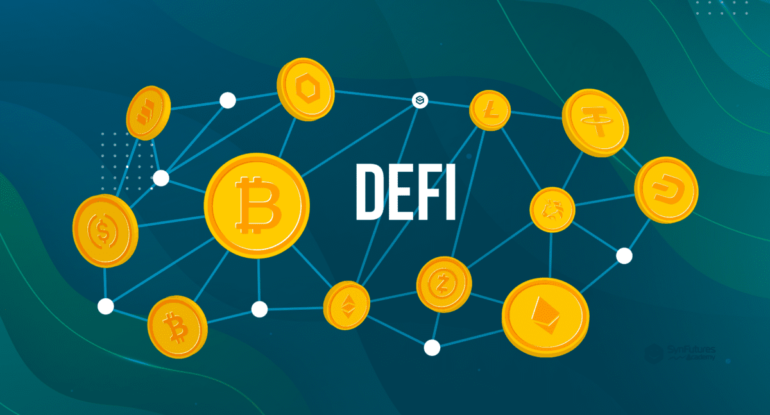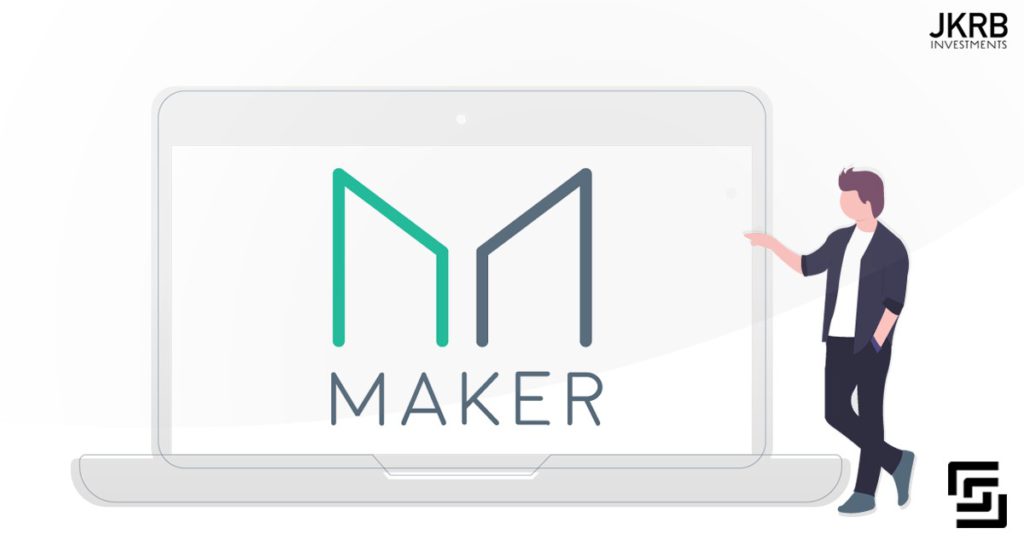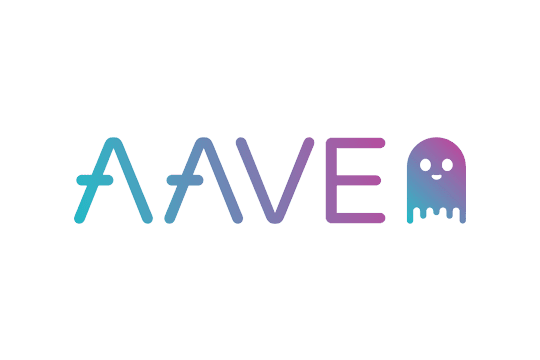Top 10 Tips On How To Launch A DeFi Company And Key Characteristics That Make It

Decentralized Finance (DeFi) has emerged as a disruptive force in the financial industry, offering a decentralized and open alternative to traditional banking and financial services. If you’re considering entering the exciting and dynamic world of DeFi, this comprehensive guide will walk you through the essential steps to successfully launch your own DeFi company.
What is a DeFi company?
A DeFi (Decentralized Finance) company is an organization that operates within the decentralized finance space, leveraging blockchain technology to provide financial services and products without traditional intermediaries like banks or financial institutions. DeFi companies aim to create an open and permissionless financial ecosystem, allowing users to access a wide range of financial services using decentralized protocols and smart contracts.
Key Characteristics of DeFi Companies:
- Decentralization:
- DeFi companies operate on decentralized networks, primarily blockchain platforms like Ethereum. This decentralization removes the need for a central authority, promoting transparency and reducing the risk of censorship.
- Smart Contracts:
- Smart contracts, self-executing agreements with the terms of the contract directly written into code, are a fundamental feature of DeFi companies. These contracts automate various financial processes, such as lending, borrowing, and trading, without the need for intermediaries.
- Open Source Code:
- DeFi projects often release their code as open source, allowing the community to review, audit, and contribute to the development. This transparency is crucial for building trust and ensuring the security of the protocols.
- Interoperability:
- DeFi companies often interact with multiple protocols and platforms. Interoperability enables users to seamlessly move assets and data across different decentralized applications (DApps) and protocols within the broader DeFi ecosystem.
- Permissionless Access:
- DeFi platforms typically allow users to participate without requiring permission. Users can access financial services directly by interacting with smart contracts, removing the need for intermediaries to approve or verify transactions.
- Tokenization:
- Many DeFi companies use tokenization to represent real-world assets on the blockchain. These tokens can represent various assets, including cryptocurrencies, stablecoins, real estate, and more. Tokenization enables fractional ownership and easier transferability.
- Liquidity Pools:
- DeFi platforms often use liquidity pools to facilitate trading and lending. Users contribute funds to these pools, and in return, they receive tokens representing their share of the pool. Liquidity providers earn fees based on the usage of the pooled funds.
- Decentralized Exchanges (DEXs):
- DeFi companies frequently host decentralized exchanges where users can trade cryptocurrencies directly from their wallets. DEXs operate without a central order book, and trades occur directly between users through smart contracts.
- Lending and Borrowing Protocols:
- DeFi lending protocols allow users to lend their assets and earn interest or borrow assets by collateralizing their holdings. These protocols often use over-collateralization to mitigate the risk of default.
- Yield Farming and Staking:
- DeFi companies offer opportunities for users to earn rewards by participating in yield farming or staking. Yield farming involves providing liquidity to earn additional tokens, while staking involves locking up tokens to support the network and earn staking rewards.
- Governance Tokens:
- Many DeFi platforms issue governance tokens, allowing users to participate in the decision-making processes of the protocol. Holders of these tokens can propose and vote on changes to the protocol’s parameters.
- Risk and Challenges:
- DeFi companies face risks, including smart contract vulnerabilities, regulatory uncertainties, and market volatility. Users should conduct thorough research and due diligence before participating in DeFi platforms.
Examples of DeFi Company:
Compound (COMP):

A decentralized lending platform where users can lend and borrow various cryptocurrencies.
Uniswap (UNI):

A decentralized exchange (DEX) that enables users to swap various Ethereum-based tokens directly from their wallets.
MakerDAO (MKR):

A decentralized autonomous organization (DAO) that issues the stablecoin DAI and allows users to collateralize assets to mint DAI.
Aave (AAVE):

A decentralized lending platform that incorporates features like flash loans and variable interest rates.
Curve Finance (CRV):

A decentralized exchange optimized for stablecoin trading, providing low slippage and low fees.
Synthetix (SNX):
 A decentralized platform that allows users to create and trade synthetic assets representing real-world assets like fiat currencies, commodities, and cryptocurrencies.
A decentralized platform that allows users to create and trade synthetic assets representing real-world assets like fiat currencies, commodities, and cryptocurrencies.
“if you are operating a DeFi company….”
They’re telling you what’s coming next.
— Avi (@AviFelman) November 21, 2023
Also, read – The Role Of Crypto Payment Gateways In Decentralized Finance (DeFi)
Top 10 Tips to launch your DeFi company
DeFi companies continue to evolve, introducing innovative solutions and expanding the scope of decentralized finance. Users interested in engaging with DeFi should exercise caution, conduct thorough research, and be aware of the inherent risks associated with the rapidly evolving space.
- Understand the Fundamentals of DeFi: Before embarking on the journey of launching a DeFi company, it’s crucial to have a solid understanding of the fundamentals of decentralized finance. Familiarize yourself with key concepts such as smart contracts, blockchain technology, liquidity pools, decentralized exchanges (DEXs), and yield farming.
- Identify a Unique Value Proposition: DeFi is a competitive space, and success often hinges on offering a unique value proposition. Identify a specific problem or inefficiency in the current financial system that your DeFi solution can address. Whether it’s providing decentralized lending, liquidity provision, or asset management, a clear value proposition will set your company apart.
- Legal and Regulatory Compliance: Navigate the complex landscape of legal and regulatory compliance. Consult with legal experts to ensure that your DeFi project adheres to the regulations of the jurisdictions you plan to operate in. Addressing compliance issues early on will prevent potential obstacles and legal challenges down the line.
- Assemble a Skilled Team: Building a talented and experienced team is crucial for the success of your DeFi company. Your team should include blockchain developers, smart contract auditors, financial experts, and marketing professionals. Collaboration and expertise in various domains will contribute to the robustness of your project.
- Choose the Right Blockchain Platform: Selecting the appropriate blockchain platform is a pivotal decision. Ethereum has been a popular choice for many DeFi projects, but other platforms like Binance Smart Chain, Solana, and Polkadot offer unique features and scalability. Evaluate the pros and cons of each platform based on your project’s requirements.
- Smart Contract Development and Auditing: Develop secure and efficient smart contracts that power the core functionalities of your DeFi platform. Security is paramount, so conduct thorough smart contract audits to identify and address vulnerabilities. Platforms like CertiK and OpenZeppelin can assist in auditing your smart contracts.
- Create an Intuitive User Interface (UI): The user interface is the gateway for users to interact with your DeFi platform. Design an intuitive and user-friendly interface to enhance the overall user experience. Accessibility and simplicity are key factors in attracting and retaining users.
- Liquidity Provision and Partnerships: Liquidity is the lifeblood of DeFi platforms. Develop strategies to incentivize users to provide liquidity to your platform. Consider forming partnerships with other projects or liquidity providers to bootstrap your liquidity pools and create a vibrant ecosystem.
- Community Building and Marketing: Foster a strong community around your DeFi project. Engage with your audience through social media, forums, and community events. Implement effective marketing strategies to raise awareness about your platform. Transparency and community trust are integral to the success of a DeFi company.
- Launch and Iterate: Launch your DeFi platform with a phased approach. Start with a minimum viable product (MVP), gather user feedback, and iterate based on real-world usage. Continuous improvement and adaptability are essential in the rapidly evolving landscape of DeFi.
Conclusion:
Launching a DeFi company requires a blend of technical expertise, strategic vision, and a deep understanding of the decentralized finance space. By following these essential steps and staying attuned to industry trends, you can position your DeFi project for success in this transformative and groundbreaking sector. Embrace the ethos of decentralization, foster innovation, and contribute to the evolution of the financial landscape through your DeFi endeavor.


























































